Table of Contents
Paul Clement files cert. petition in campaign ballot slogan case — First Amendment News 378
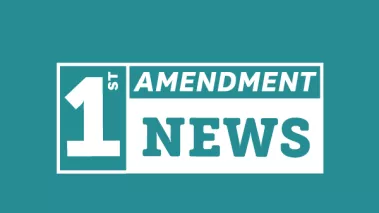
First Amendment News is a weekly blog and newsletter about free expression issues by Ronald K. L. Collins. It is editorially independent from FIRE.
“[W]e recognize the line separating core political speech from the mechanics of the electoral process has proven difficult to ascertain.” — Judge Cheryl Ann Krause Judge (3rd Cir., 2022)
Some four years ago we profiled Paul Clement as “Mr. First Amendment in the Roberts Court.” Thereafter, there was a First Amendment Salon with Mr. Clement and Floyd Abrams (see here also). Now Mr. Clement returns to the Court with his latest First Amendment petition: Mazo v. New Jersey Secretary of State. The issue raised in the case is whether “a state that permits political candidates to engage in core political speech on the ballot may restrict that speech on the basis of content and viewpoint without satisfying strict scrutiny.”
Summary of the case
Here is how Mr. Clement summarizes the case:

The decision below allows New Jersey to regulate core political speech at the election’s critical moment, and to do so on the basis of content and viewpoint while insulating entrenched political machines from serious primary challenges. New Jersey allows candidates in primary elections to engage in political speech on the ballot via six-word slogans next to their names. New Jersey was not obligated to allow candidates to communicate directly with voters at the very moment they cast their ballots. But having done so for the express purpose of allowing candidates to distinguish themselves from their primary opponents, the state could not dictate content or skew the debate. Undeterred, the state prohibits candidates from referencing the name of any individual anywhere in the world (e.g., ‘Never Trump” or ‘Evict Putin From Ukraine’) or any New Jersey corporation (e.g., ‘Higher Taxes for Merck & JnJ’) absent written consent. Entrenched political machines have long exploited this law by using political associations incorporated in New Jersey to signal which candidates enjoy machine support in the primary. Tellingly, New Jersey drops the consent requirement altogether on the general- election ballot. The Third Circuit upheld this glaring free-speech violation only by bypassing traditional First Amendment scrutiny in favor of the amorphous Anderson-Burdick balancing test.
From the Clement cert. petition
REASONS FOR GRANTING THE PETITION
- The Third Circuit’s Conclusion That New Jersey May Directly Regulate The Content of Political Speech At The Decisive Stage of The Electoral Process Defies The First Amendment And This Court’s Precedents.
- New Jersey’s Slogan Statutes Are Plainly Unconstitutional Under Traditional First Amendment Analysis
- The Third Circuit Erred in Invoking and Applying Anderson-Burdick
- The Decision Below Conflicts with Decisions from Other Lower Courts
- The Question Presented is Exceptionally Important
CONCLUSION
Related
-
Mazo v. New Jersey Secretary of State (3rd Cir., 2022) (Ryan Morrison of the Institute for Free Speech argued the case for the Appellants)
Trump’s $100M defamation lawsuit dismissed by New York judge
- Susanna Granieri, “New York Judge Dismisses Trump’s $100M Lawsuit Against the New York Times,” First Amendment Watch (May 4)
A New York judge dismissed Donald Trump’s $100 million lawsuit against his niece, the New York Times and three of its reporters May 3, ruling that the paper’s investigation into the former president’s finances is protected newsgathering under the First Amendment.
In September 2021, Trump sued Mary Trump, the Times and three of its reporters — David Barstow, Susanne Craig and Russ Buettner — and claimed the Times’ Pulitzer Prize-winning investigation was a result of an “insidious plot” involving Mary and the Times’ reporters “to obtain confidential and highly sensitive records” about Trump’s finances.
New York State Supreme Court Justice Robert R. Reed found that Trump’s claims against the newspaper and its reporters “fail as a matter of constitutional law.”
Related
- Kate Christobek, “Jury Finds Trump Liable for Sexual Abuse and Defamation,” The New York Times (May 9)
- Eugene Volokh, “Trump v. Trump: Journalists' Urging Source to Breach Nondisclosure Contract Is Constitutionally Protected,” The Volokh Conspiracy (May 5)
Tucker Carlson sues Fox and moves to Twitter
- Caroline Downey, “Tucker Carlson Accuses Fox of Fraud, Contract Violations in Scathing Letter,” National Review (May 9)
The legal team of former Fox News host Tucker Carlson on Tuesday sent the network, which fired him last month, a scathing letter accusing it of fraud and contract violations that could merit litigation.
The document challenges the noncompete provision of Carlson’s contract, which if nullified could allow the star to develop a new show or media project independent of Fox, Axios first reported. Written by attorney Bryan Freedman and addressed to Fox officials Viet Dinh and Irena Briganti, the letter claimed that Fox breached its contract with Carlson, therefore making it excusable for him to start a new media venture.”
Moves to Twitter
- Jeremy Barr, Faiz Siddiqui, and Sarah Ellison, “Tucker Carlson announces Twitter show. Elon Musk tweets cool welcome.,” The Washington Post (May 9)
Tucker Carlson, who was fired by Fox News late last month, said in a video posted Tuesday afternoon on Twitter that he will soon be launching “a new version” of his television show on the social media platform.
“We will be bringing some other things, too, which we’ll tell you about,” he said. “But for now, we’re just grateful to be here.”
Carlson has been itching for a return to the public scene since his ouster from Fox, according to people in his circle.
It was not immediately clear how Carlson decided to bring his content to Twitter.
YouTube: Carlson unplugged.
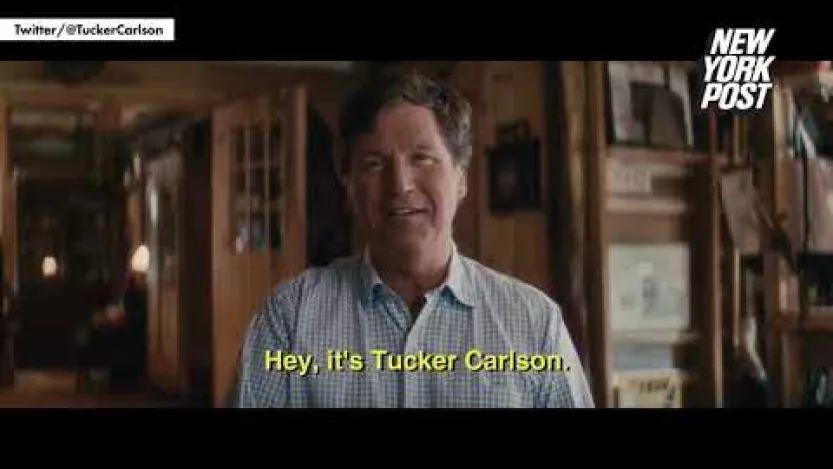
First Amendment Salon: Exchange between lead lawyers for Dominion and Fox
In an engaging and highly informative exchange last evening at the Ballard Spahr law firm in Washington, D.C., Tom Clare (counsel for Dominion) and Dan Webb (counsel for Fox) participated in a lively give-and-take moderated by noted media lawyer Lee Levine.
- The Salon was organized by Seth Berlin
- A video of the Salon will be posted on the Salon’s website in a week or so
- A “So to Speak” podcast will be available soon
Forthcoming book: Lebovic on Espionage Act and the rise of secrecy
- Sam Lebovic, “State of Silence: The Espionage Act and the Rise of America's Secrecy,” Basic Books (Nov. 21, 2023)

A top scholar reveals how the Espionage Act gave rise to a vast American security state that keeps citizens in the dark
In State of Silence, political historian Sam Lebovic uncovers the troubling history of the Espionage Act. First passed in 1917, it was initially used to punish critics of World War I. Yet as Americans began to balk at the act’s restrictions on political dissidents and the press, the government turned its focus toward keeping its secrets under wraps.
The resulting system for classifying information is absurdly cautious, staggeringly costly, and shrouded in secrecy, preventing ordinary Americans from learning what their country is doing in their name, both at home and abroad.
Shedding new light on the bloated governmental security apparatus that’s weighing our democracy down, State of Silence offers the definitive history of America’s turn toward secrecy—and its staggering human costs.
Forthcoming book on the state of the free press in 2024
- Andy Lee Roth and Mickey Huff, eds., “Project Censored’s State of the Free Press 2024,” Seven Stories Press (Dec. 5, 2023)
As the United States grapples with the ongoing COVID-19 pandemic, the nation’s living legacy of systemic inequalities, and partisan threats to the foundations of democracy, the integrity of news—the focus of Project’s Censored’s work and this book—has never been more important.
State of the Free Press 2024 continues Project Censored’s tradition of publicizing the most important stories ignored or obscured by the news establishment, exposing the lies and spin of corporate Junk Food News (frivolous stories that distract the public from actual news) and News Abuse (important stories covered in ways that undermine public understanding) while promoting the best independent journalism, research, and activism.
This 2024 edition includes independent investigative reporting on issues and topics that reflect recurring patterns of indirect censorship in corporate news coverage, where the outlets failed to provide the coverage and context that these stories deserved based on their social significance and relevance to current political and cultural debates. Most importantly, this edition helps endow readers with the critical media literacy skills required to hold power to account for distorting or censoring news coverage.
Now in paperback: Rosenberg on the fight for free speech
- Ian Rosenberg, “The Fight for Free Speech: Ten Cases That Define Our First Amendment Freedoms,” New York University Press (May 16, 2023)
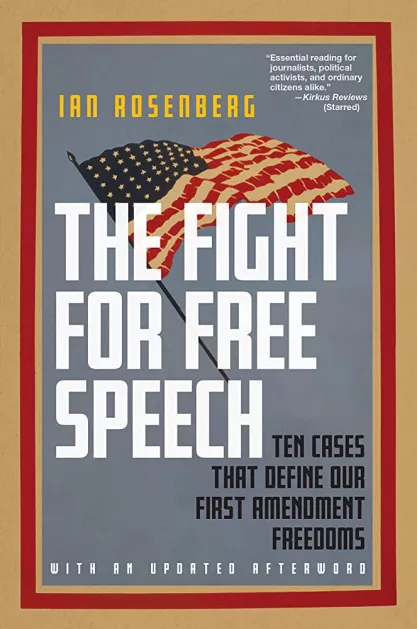
A User’s guide to understanding contemporary free speech issues in the United States
Americans today are confronted by a barrage of questions relating to their free speech freedoms. What are libel laws, and do they need to be changed to stop the press from lying? Does Colin Kaepernick have the right to take a knee? Can Saturday Night Live be punished for parody? While citizens are grappling with these questions, they generally have nowhere to turn to learn about the extent of their First Amendment rights.
The Fight for Free Speech answers this call with an accessible, engaging user’s guide to free speech. Media lawyer Ian Rosenberg distills the spectrum of free speech law down to ten critical issues. Each chapter in this book focuses on a contemporary free speech question―from student walkouts for gun safety to Samantha Bee’s expletives, from Nazis marching in Charlottesville to the muting of adult film star Stormy Daniels― and then identifies, unpacks, and explains the key Supreme Court case that provides the answers.Together these fascinating stories create a practical framework for understanding where our free speech protections originated and how they can develop in the future. As people on all sides of the political spectrum are demanding their right to speak and be heard, The Fight for Free Speech is a handbook for combating authoritarianism, protecting our democracy, and bringing an understanding of free speech law to all.
Forthcoming scholarly article: Helen Norton on free speech and securities regulation laws
- Helen L. Norton, “What 21st-Century Free Speech Law Means for Securities Regulation,” Notre Dame Law Review (forthcoming 2023)
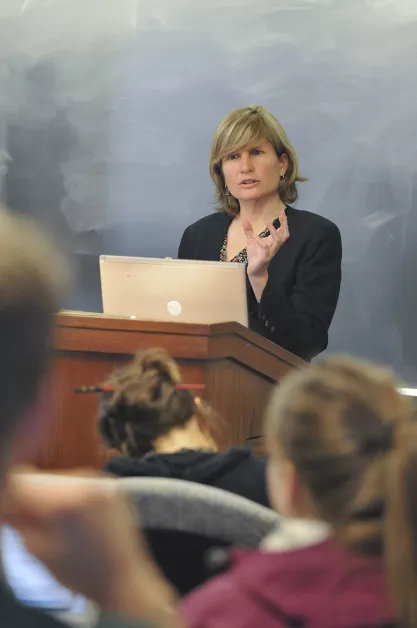
Securities law has long regulated securities-related speech — and until recently, it did so with little, if any, First Amendment controversy. Yet the antiregulatory turn in the Supreme Court's 21st-Century Free Speech Clause doctrine has inspired corporate speakers' increasingly successful efforts to resist regulation in a variety of settings, settings that now include securities law. This doctrinal turn empowers courts, if they so choose, to dismantle the securities regulation framework in place since the Great Depression. At stake are not only recent governmental proposals to require companies to disclose accurate information about their vulnerabilities to climate change and other emerging risks, but also longstanding governmental efforts to inform and protect investors while serving broader public interests.
This Article takes seriously this threat to the securities law framework and defends that framework's constitutionality. It describes why and how securities law regulates speech to inform and protect investors — functions that also achieve public-regarding goals by facilitating stable and efficient markets, encouraging corporate accountability, and ameliorating the systemic economic risks of market collapse. It then maps this securities law framework onto First Amendment law, demonstrating why and how this regulatory framework aligns with Free Speech Clause theory and doctrine. Key to this alignment is securities law's listener-centered functions.
More specifically, this Article makes the case for identifying securities-related speech as a category of speech unprotected by the First Amendment. The Court has long considered the regulation of certain categories of speech as exempt from First Amendment review, and it has more recently announced a backward-looking methodology for determining those categories that turn on identifying a longstanding regulatory tradition of restricting speech with a category without triggering First Amendment scrutiny. We can trace a lengthy regulatory tradition of responding to the informational asymmetries endemic to securities markets by prohibiting companies from making certain false and misleading statements and by requiring them to make accurate disclosures. This Article demonstrates how securities law remains consistent with this tradition (and thus regulates within a category of unprotected speech) through disclosures that inform investors' diverse approaches for assessing value and risk, including emerging risks like climate change.
While maintaining that the securities market is sufficiently distinct from other markets in its susceptibility to information asymmetries to justify recognizing securities-related speech as its own category of unprotected speech, this Article also considers the possibility that the Court will instead turn to an entirely separate doctrine for considering the constitutionality of securities law: the very different rules that apply to the government's regulation of commercial speech. Here too securities regulation’s listener-centered functions do important First Amendment work, as much of the securities law framework satisfies review under commercial speech doctrine so long as we continue to tether commercial expression’s constitutional protection to that expression’s capacity to inform listeners’ decisionmaking.
Forthcoming scholarly article on algorithms and the marketplace of ideas
- Garrett Morrow and John Wihbey, “Marketplace of Ideas 3.0? A Framework for the Era of Algorithms,” Richmond Journal of Law and Technology (forthcoming 2023)
For over a century, Supreme Court Justice Oliver Wendell Holmes’ metaphor of the “Marketplace of Ideas” has been central to Americans’ conceptualization of the First Amendment. However, the metaphor has evolved, and today’s marketplace looks much different than the marketplace of the early twentieth century. We argue that the Marketplace of Ideas is now a dynamic environment of information exchange that is distributed throughout the internet and private applications and is guided by algorithms.
The modern Marketplace of Ideas frames the discussion of freedom of expression and content moderation. An updated understanding of the metaphor allows for an improved public sphere of discussion where free thought can flourish, truth can be tested, and ideas can be productively exchanged. This paper articulates three central evaluative criteria against which a given contemporary marketplace regime can be judged: instrumental value; epistemic value; and normative value. In this paper, we explain how the metaphor has evolved into marketplace 3.0 and the criteria necessary for judging the usefulness of the Marketplace of Ideas.
New scholarly article: Barbas on the history of Beauharnais v. Illinois
- Samantha Barbas, “The Story of Beauharnais v. Illinois,” Journal of Free Speech Law (2023)

Introduction
I. Beauharnais and the White Circle League
1. Battles over Integration on Chicago’s South Side
2. The Leafletting Incident
3. The Illinois Group Libel Law
4. The White Circle League in Court
5. The American Civil Liberties Union
6. The NAACP
II. The First Amendment and Hate Speech
1. Constitutional Questions
2. Arguments
III. Beauharnais v. Illinois
1. The Beauharnais Opinion
2. Group Libel
3. The Importance of Group Reputation
4. Dissenting Opinions
IV. The Aftermath of Beauharnais
1. Criticism of the Decision
2. The Demise of Group Libel
YouTube: Bill Maher’s announces winners of cojones (free speech) awards
- “New Rule: The Cojones Awards | Real Time with Bill Maher,” (HBO (April 2023)
Bill introduces a new award for outstanding achievement in growing a pair.
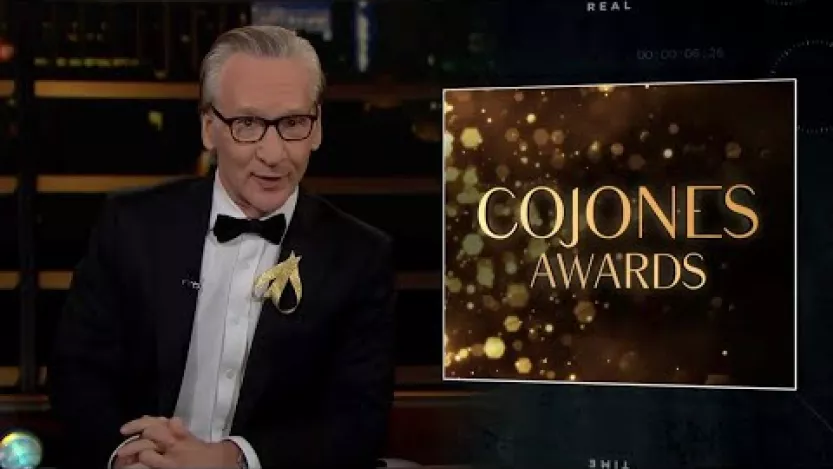
YouTube: ‘Hate Breeds Hate’ — FIRE
- “The Keshia Thomas story,” FIRE, YouTube (April 2023)
In 1996, Keshia Thomas joined a counter-protest against the Ku Klux Klan in Ann Arbor, Michigan, and witnessed firsthand the violent rage of a mob that had cornered a lone Klansman. Amid the chaos, Keshia chose to act with bravery and humanity, throwing herself on top of the man to shield him from the crowd's fury. Through Keshia's powerful testimony, we're reminded that we cannot use violence to change hearts and minds. Only speech can do that.
[INSERT VIDEO LINK HERE]
Related
- Greg Lukianoff, “Free speech gives us richness, complexity, nuance, and awe,” FIRE, YouTube (April 2023)
More in the news
- Jeremy Herb and Kara Scannell, “Judge limits Trump’s sharing of information from New York criminal case on social media,” CNN (May 8)
- Talia Barnes, “Uncompelling verdict: After 18-year legal battle, former student loses fight against college officials who tried to compel his speech,” FIRE (May 8)
- Sabrina Conza, “UC Santa Cruz violates First Amendment obligations, investigates students for hosting Hitler birthday party,” FIRE (May 8)
- Talia Barnes, “Approaching challenging ideas with resilience, not fear,” FIRE (May 5)
- Andrew Wimer, “Qualified Immunity Blows A Hole In The First Amendment,” Forbes (May 4)
- Jacob Mchangama and Nadine Strossen, “The First Amendment Is the Greatest Defense for the Powerless and Marginalized,” The Daily Beast (April 28)
- Oliver Darcy, “Disney has a ‘strong case’ against DeSantis over his ‘retaliatory campaign,’ First Amendment experts say,” (April 27)
- Jameel Jaffer, “Judging in Secret,” Knight First Amendment Institute (April 13)
2022-2023 SCOTUS term: Free expression and related cases
Review granted
- O’Connor-Ratcliff v. Garnier
- 303 Creative LLC v. Elenis (argued Dec. 5)
- Jack Daniel’s Properties, Inc. v. VIP Products LLC (argued March 22)
- United States v. Hansen (argued, March 27) (Volokh commentary here)
- Counterman v. Colorado (argued, April 19)
Pending petitions
- Mazo v. New Jersey Secretary of State
- Tingley v. Ferguson
- Frese v. Formella
- National Rifle Association of America v. Vullo
- Mobilize the Message v. Bonta
- Vidal v. Elster
- U.S. v. Hernandez-Calvillo
- Moody v. NetChoice, LLC
- NetChoice, LLC v. Moody
- Florida v. NetChoice
- Klein v. Oregon Bureau of Labor and Industries
State action
- O’Connor-Ratcliff v. Garnier (cert. granted)
- Lindke v. Freed (cert. granted)
Qualified immunity
- Novak v. City of Parma (cert. denied)
Immunity under Foreign Sovereign Immunities Act
- NSO Group Technologies Limited v. WhatsApp Inc. (cert. denied)
Liability Anti-Terrorism Act
- Twitter v. Taamneh (argued Feb. 22)
Section 230 immunity
- Gonzalez v. Google (argued Feb. 21)
Review denied
Previous FAN
This article is part of First Amendment News, an editorially independent publication edited by Ronald K. L. Collins and hosted by FIRE as part of our mission to educate the public about First Amendment issues. The opinions expressed are those of the article's author(s) and may not reflect the opinions of FIRE or of Mr. Collins.
Recent Articles
Get the latest free speech news and analysis from FIRE.

FIRE's 2025 impact in court, on campus, and in our culture

The trouble with banning Fizz

VICTORY: Court vindicates professor investigated for parodying university’s ‘land acknowledgment’ on syllabus


